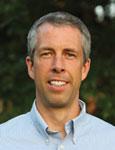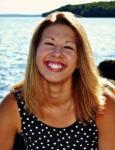In July 2015, the UW-Madison Arboretum Earth Partnership Program and partners in the Red Cliff and Bad River Nations offered a “Learning from the Land” youth institute at Northland College for middle and high school students from the Red Cliff and Bad River Reservations. The institute is part of Earth Partnership’s Indigenous Arts and Sciences (IAS) initiative funded by the National Science Foundation, Wisconsin Sea Grant, the Wisconsin Environmental Education Board, the Elementary and Secondary Education Act, and the Baldwin Wisconsin Idea Endowment. Begun in 2011, IAS now works with four of Wisconsin’s eleven Native Nations: Red Cliff, Bad River, Lac du Flambeau, and Ho-Chunk with plans in place to work with others as well. IAS integrates indigenous knowledge and community cultural connections to reframe and reclaim science learning in tribal communities. The initiative addresses the need for culturally relevant learning experiences and career exploration in the context of ecological restoration and environmental stewardship.
The Northland Learning from the Land youth institute was taught by Red Cliff and Bad River elders, and assisted by Rick Erickson, high school science teacher at Bayfield High School, Ron Cline of Ashland Middle School, Northern IAS Coordinator Tony Gilane, and Earth Partnership staff members Cheryl Bauer-Armstrong and Steve Laubach. Elders, course facilitators, and youth participants explored the topics of restoration and stewardship through lessons on water quality, Ojibwe language, tribal sovereignty, traditional harvesting practices, and related topics. The essay below is written by Shania Leask, an enrolled member of the Red Cliff Band of Lake Superior Chippewa and a junior at UW-La Crosse. She served as a mentor to students in the institute.
—Steve Laubach, UW-Madison Arboretum
______________________________________
I have lived most of my life on the reservation of the Red Cliff Band of Lake Superior Chippewa located on the south shore of Lake Superior. For the first 18 years of my life I was able to experience this beautiful and majestic body of water at my leisure without even thinking about it. I never knew how important Lake Superior was to me until I moved to La Crosse to attend college at UWL. After I arrived, I found myself not only missing Lake Superior, but also developing a passion for aquatic science. I realized I wanted to learn more about this area and decided to change my major from physical therapy to biology with a concentration in aquatic science.

While interning for Apostle Islands National Lakeshore in the summer of 2015 I was fortunate enough to participate as a mentor in the Earth Partnership Learning from the Land institute. My favorite activity from the program was macroinvertebrate and water sampling on the Potato River, a tributary of the Bad River. Students not only learned how to properly conduct the sampling but were also given the chance to practice various sampling skills. It was exciting for me to see and hear these students take a genuine interest in one of my greatest passions.

Our non-water related activities included learning sustainable farming and implementing a native plant restoration. The speakers stressed the idea that everything is related to one another, creating a large network of connections between all living things. By practicing sustainable farming and restoring native plants, we were protecting and caring for our world’s precious freshwater supply.
I have previously helped collect water samples from Outer Island and Lake Superior’s Lunch Beach near Cornucopia. I have also collected from Peter and Paul Lake located at the University of Notre Dame Research Center in the Upper Peninsula of Michigan as part of a limnology class, where I analyzed various components of water including chlorophyll, phosphate, and iron. The Learning from the Land program continued to reinforce concepts, methods, and ideas that I learned through my internship and college coursework.

I was very fortunate to have been a part of this program. Looking back, I most value the connections I was able to make with staff at different natural resource agencies around future internships and possible careers in aquatic science. I feel that it not only gave me insights on what my future career might look like but also allowed me the opportunity to talk with some people who are in my field of study.
There are two people in particular that I would like to thank and acknowledge for their support and encouragement in both aquatic biology and the field of science in general. These individuals are Richard Erickson and Brenda Lafrancois. Mr. Erickson was my high school chemistry and physical science teacher as well as my mentor in an independent science research project that looked at the effects of different fertilizers on blueberry plants. He demonstrated for me how benefits come from hard work, passion, and dedication. He always will be one of my biggest role models. Brenda was my mentor during my internship at Apostle Islands National Lakeshore. Even though I have only known Brenda for a short period of time, she has been a wonderful help and resource for future career opportunities in the aquatic field. She is currently helping me find an internship for the upcoming summer that will give me even more experience in aquatics. I am truly thankful for everything that both Mr. Erickson and Brenda have done to help me succeed in my future endeavors as an aquatic biologist.





